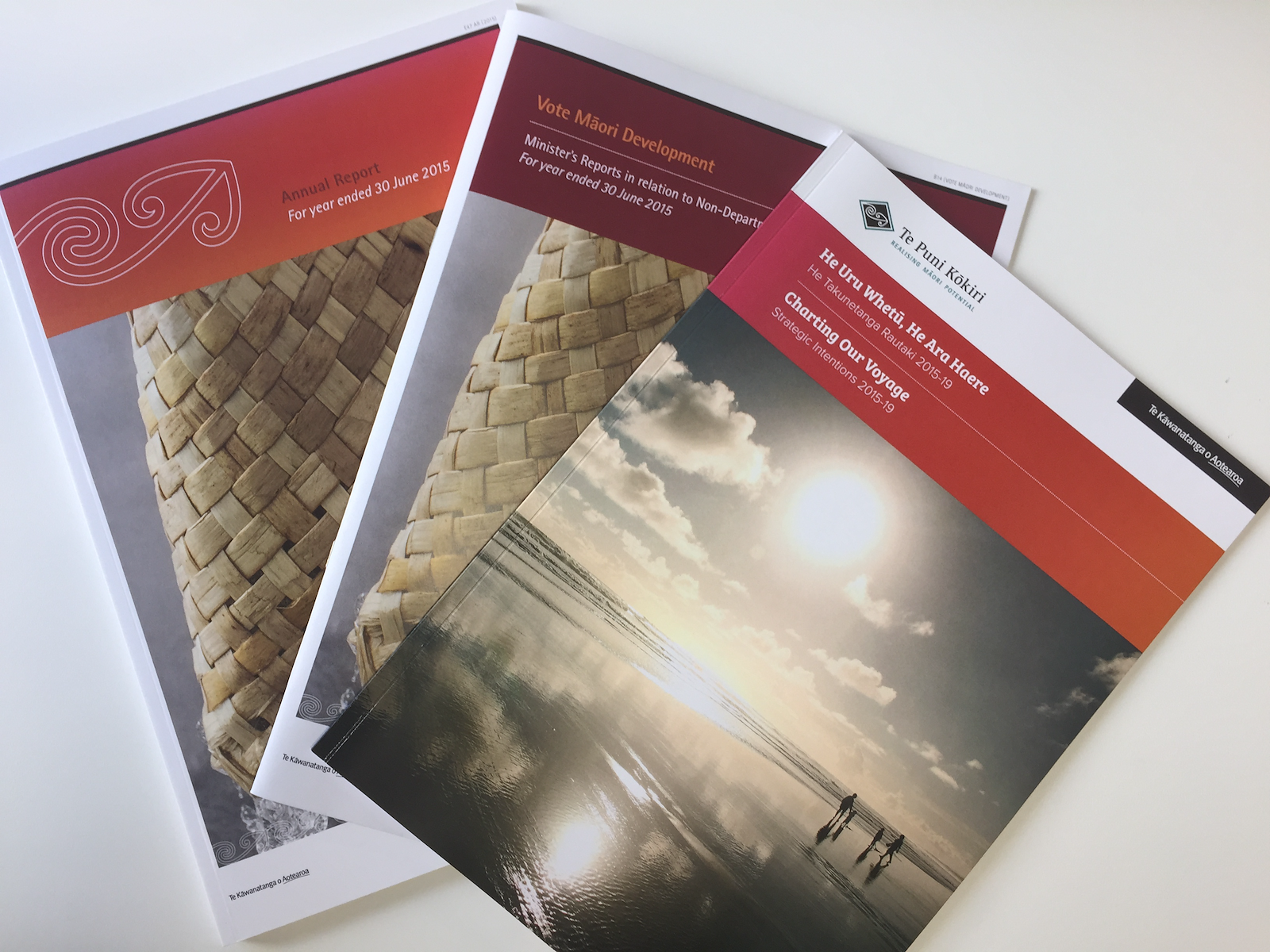In this edition of Mai i te Toihautū, Michelle Hippolite introduces our four outcome areas – Whakapapa (Identity), Oranga (Wellbeing), Whairawa (Prosperity), and Whanaungatanga (Relationships).
Published: Monday, 9 November 2015 | Rāhina, 09 Whiringa ā-rangi, 2015

Ko te pae tawhiti, whāia kia tata. Ko te pae tata, whakamaua kia tina.
Last month, Hon Te Ururoa Flavell tabled in parliament his Ministry’s key planning and accountability documents – Strategic Intentions 2015-2019, Annual Report 2015, and Minister’s Report in relation to Non-Departmental Appropriations 2015 – for the first time as the Minister of Māori Development, and Whānau Ora.

While the Annual Report and Minister’s Report square off Te Puni Kōkiri achievements for the year ending 30 June 2015, He Uru Whetū, He Ara Haere: Strategic Intentions 2015-2019 sets out the Ministry of Māori Development’s strategic direction for the next four years.
Our Strategic Intentions document outlines four new outcome areas in which Te Puni Kōkiri will organise its mahi: Whakapapa (Identity), Oranga (Wellbeing), Whairawa (Prosperity), and Whanaungatanga (Relationships).
On the Te Puni Kōkiri website you can read about some of our mahi that contributes to these outcome areas.
The Māori Housing Network was launched at the opening of the Ranga-Bidois whānau papakāinga in Ngāruawahia last month. The Network supports existing initiatives and leadership in the Māori housing sector with information, advice and practical support to build capability. It also manages funds to support projects to improve housing outcomes for whānau Māori.
Māori Development Minister Hon Te Ururoa Flavell and Communications Minister Hon Amy Adams announced eight appointments to the Māori ICT Development Fund Expert Advisory Group.
The advisory group will make recommendations to Minister Flavell as to how to invest the Māori ICT Development Fund. Share your whakaaro at workshop hui around the motu this month.
Cabinet agreed to the Minister for Māori Development’s changes to the Māori Language (Te Reo Māori) Bill.
Key proposals approved by Cabinet include:
- giving legislative status to two Māori Language Strategies, one the responsibility of the Crown, which will focus on national-level issues and the other strategy the responsibility of tāngata whenua that will focus on matters at an iwi and community level;
- that the primary responsibilities of Te Mātāwai is to support whānau, hapū, iwi and communities, but also enabling it to influence central government efforts.
- adjusting the membership of Te Mātāwai to ensure representation for Urban Māori and providing for Te Puni Kōkiri to facilitate the selection process;
- maintaining Te Taura Whiri and Te Māngai Pāho as Crown Entities; and
- establishing two governance and engagement forums between Te Mātāwai and the Crown
Minister Flavell anticipates this Bill will be enacted as law in early 2016.
Also in early 2016, Minister Flavell intends to introduce the draft Te Ture Whenua Māori Bill into the House of Representatives. Next week the Waitangi Tribunal will hold an urgent hearing regarding Te Ture Whenua Māori reform. You can read information about what has happened so far on our website.
Te Puni Kōkiri continues its role as the government department responsible for Whānau Ora. If you’d like to know more about it read up on Frequently Asked Questions, or to access services contact your closest Commissioning Agency.
Te Puni Kōkiri is a small policy-led organisation, with a lot to do. Our Strategic Intentions document makes clear our role advising Government on a broad range of matters related to Māori development. We must also continue building strong working relationships with other Ministries and government agencies, and support agencies to improve their effectiveness for Māori. Simultaneously we recognise responsibilities for advancing policy and delivering services across most sectors, remain with those agencies.
We will be deliberate in our mahi, intervening where we have a mandate, a high level of influence, or can make a significant difference. Our four outcome areas – Whakapapa (Identity), Oranga (Wellbeing), Whairawa (Prosperity), and Whanaungatanga (Relationships) – provides focus as we look towards our horizons, and vision of iwi, hapū, and whānau Māori succeeding as Māori.
Ngā manaakitanga
Michelle Hippolite
Toihautū | Chief Executive